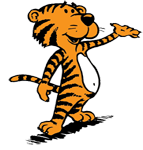4th Grade Newsletter
May 2, 2022
Language Arts
What are we learning?
- Understand the components of fiction (setting, characters, plot, theme, problem, solution)
- Create a fictional story using all elements of a story
- Explore test taking strategies such as slash the trash, reread the question/passage, look at context clues to discern the meaning of a word
Home/School Connection
- Identify key elements in a story, show, and/or movie. Investigate how a character can choose a variety of different solutions to a problem.
- Discuss how the setting (time, seasons, year, place) can influence fiction
- Highlight important or unfamiliar vocabulary and use strategies such as context clues and glossary search to better understand the text
Math
What are we learning?
- Determine elapsed time
- Analyze and interpret bar and line graphs
- Determine the probability of events based on possible outcomes
- *************************************************
- Identify and describe the diameter, radius, chord, and circumference of a circle
- Classify and measure right, acute, obtuse, and straight angles
- Classify triangles as right, acute, or obtuse and equilateral, scalene, or isoscele
- Investigate the sum of the interior angles in a triangle and determine an unknown angle measure
Home/School Connection
- Discuss the best unit for measuring different things- when to measure with inches, pounds, or kilometers.
- Practice telling how much time has passed or what time it will be in ___ hours and ___ minutes.
- Discuss the likelihood of events using probability vocabulary: certain, likely, equally likely, unlikely, and impossible
-
******************************************
- Find circles and triangles in the home and identify their parts and/or names.
- IF a protractor is available, have them measure angles of triangles.
Science
What are we learning?
- They should be able to describe the major characteristics of the sun.
- We’ll compare and contrast the surface conditions of Earth, the moon and the sun.
- They’ll find out about the contributions of the NASA Apollo missions to our knowledge of the moon.
Home/School Connection
- Ask about our solar system's star and have them describe it.
- Discuss the NASA missions to the moon and what they discovered by landing on the moon.
- Ask why the moon and earth have different surfaces.
Social Studies
What are we learning?
- Identify ideas and actions of people and groups have consequences and can shape events.
- Understand that conflict has consequences on culture, society, or a group of people.
- Realize that people respond to and resolve conflicts in many different ways.
- Develop an understanding of cause and effect and how it can help people solve problems and make decisions.
Home/School Connection
- What did freedom mean to Virginians after the Civil War? How did its meaning change over time?
- How can individuals stop injustices in society?
- Will there always be resistance to equality?
- What does it mean to be free? What does it mean to be oppressed?
- How do people draw on their culture and family to resist oppression?

